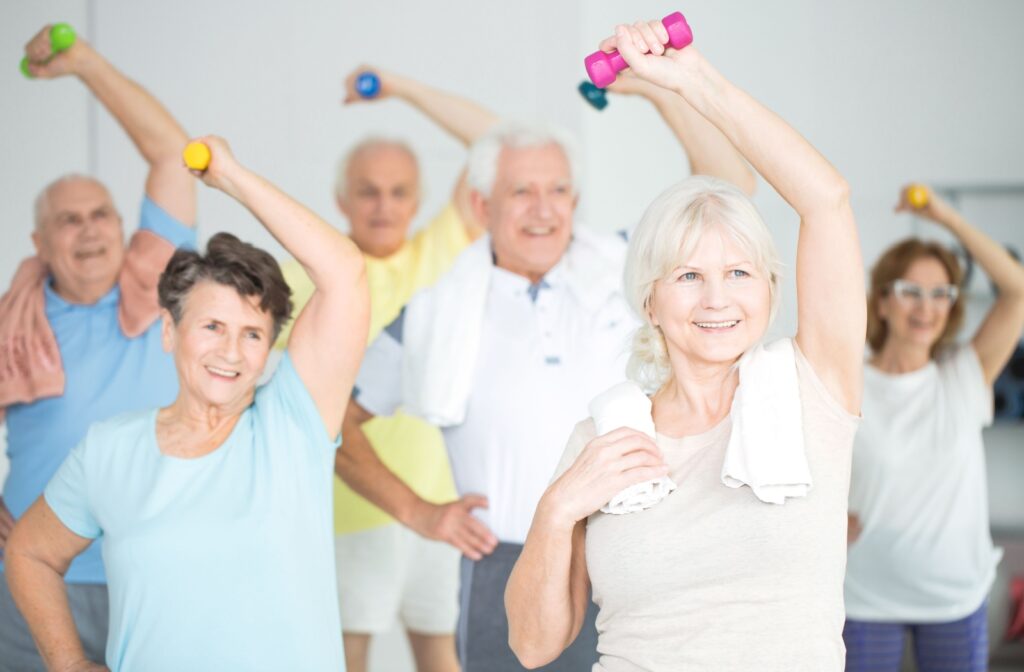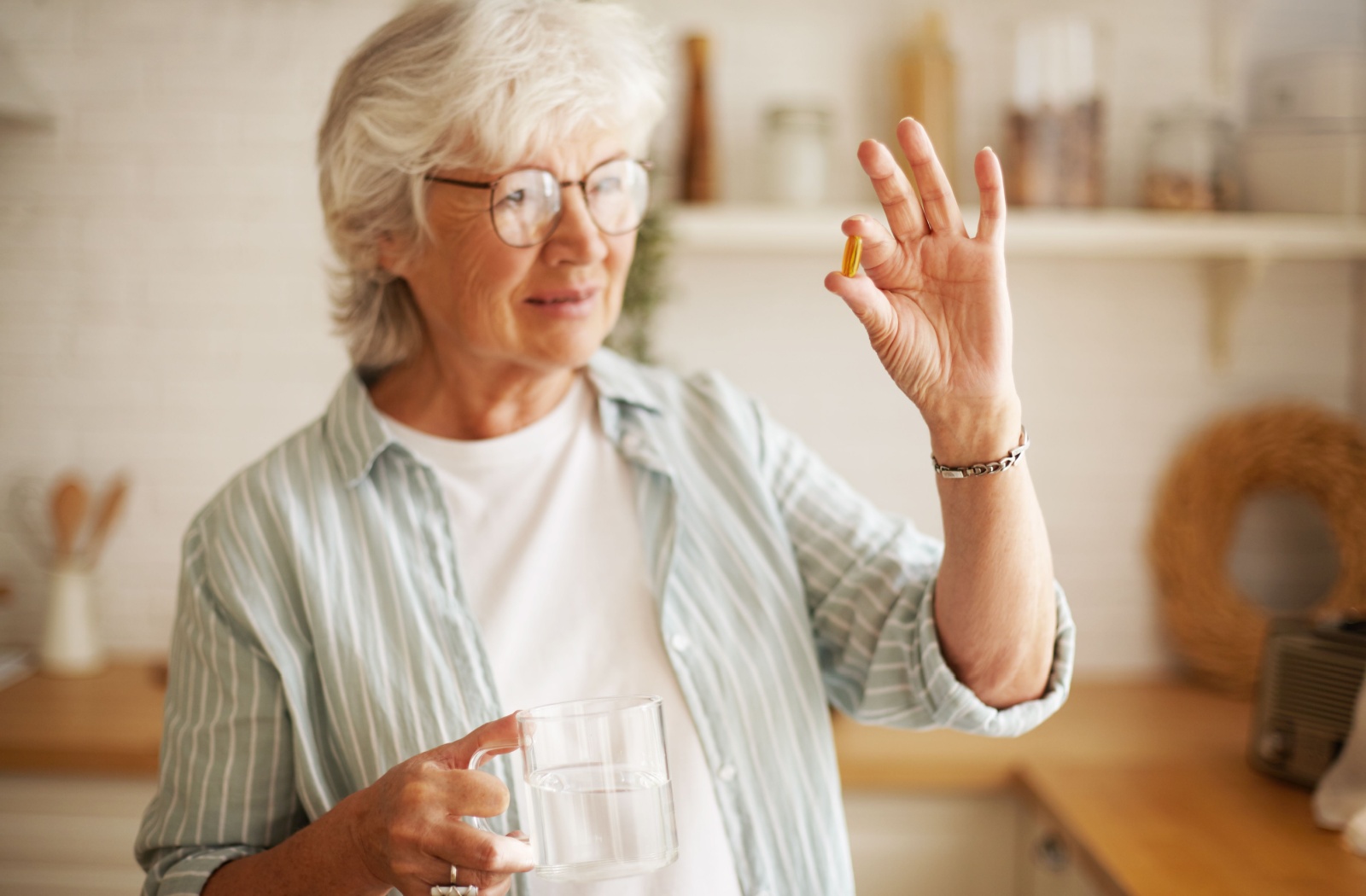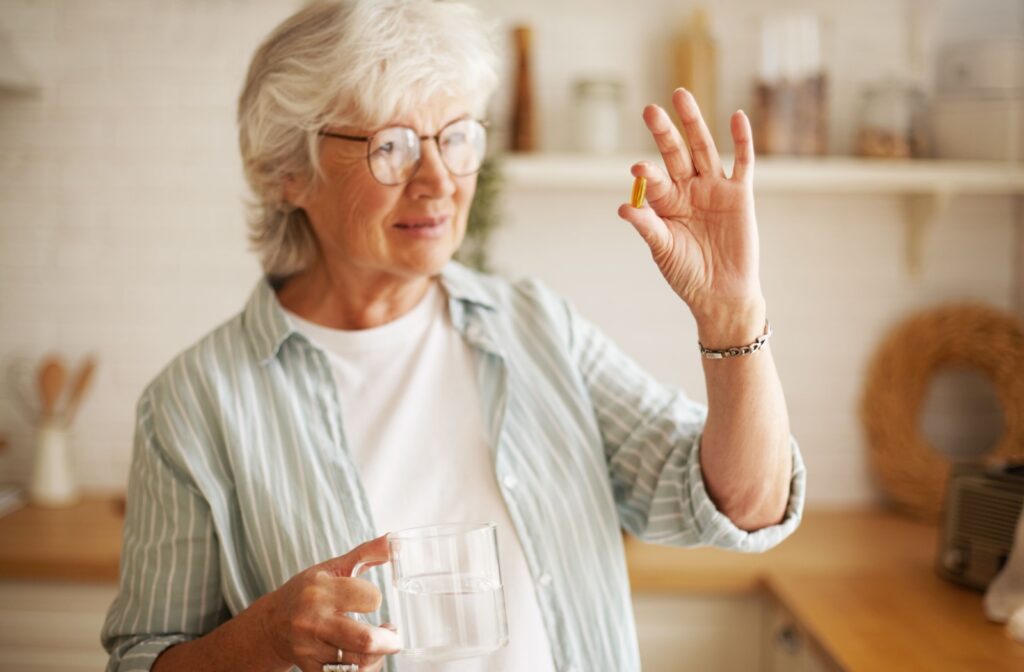Your body showcases its incredible capability to carry you through your daily activities at every stage of life. Yet, as we age, we often observe that the fluidity of our youth starts encountering some resistance, particularly in our joints. Taking care of these critical junctures in your body becomes paramount to maintaining not just movement but also quality of life.
The most important ways to keep your joints healthy as you age include:
- Diet and nutrition
- Low-impact exercise
- Rest and recovery
- Hydration
Importance of Taking Care of Your Joints
Maintaining healthy joints is not just about comfort—it’s fundamentally about cherishing your independence and fully experiencing life’s precious moments. Igniting vitality in your joints through mindful diet and exercise can profoundly influence your overall happiness and enable you to engage in life’s adventures.
Diet & Nutrition for Healthy Joints
The adage “you are what you eat” couldn’t be more accurate when it comes to joint health. You can support your joints by nourishing your body with vitamins like:
- Vitamin D
- Omega-3 fatty acids
- Calcium
- Vitamin K
- Vitamin C
- Vitamin E
Picture your plate adorned with vibrant green leafy vegetables, calcium-rich dairy, fatty fish like salmon, and a sprinkle of nuts and seeds. These aren’t just components of a meal; they are your allies, fortifying your joints against the test of time.
In addition to a well-rounded diet, certain supplements can also support joint health. Glucosamine and chondroitin are popular options known for their ability to improve joint pain and function over time. Consult with your healthcare provider before incorporating any new supplements into your routine.
Finally, don’t forget about the importance of rest and recovery. Getting enough sleep is crucial for allowing your joints to repair themselves after a day of wear and tear. Incorporating gentle stretching exercises into your routine before bed can also help improve flexibility and reduce stiffness in the joints.
Exercise for Healthy Joints
Imagine your joints as intricate machines; without regular use, they can rust. Exercise acts as the perfect oil, ensuring they continue to operate smoothly. Engaging in low-impact exercises such as swimming or cycling can enhance joint flexibility and strength. Yoga and Pilates can grace your body with balance and fluid motion, all the while being gentle on your joints.
Supporting your body with muscle-strengthening exercises helps ground your joints with robust protection from potential injuries. Even simple range-of-motion activities can help you maintain and improve your flexibility. Frequent stretches and the soft flowing movements of Tai Chi can keep the body limber and light.
In addition to physical benefits, exercise can also improve mental well-being. Endorphins released during exercise can boost mood and reduce stress and anxiety levels.
It’s important to note that when starting any new exercise routine, it’s essential to listen to your body and start slow. Gradually increase intensity and duration over time to avoid injury or strain on your joints.
Rest & Recovery
While staying active is important for overall well-being, giving your joints the time they need to rest and recover is essential for long-term joint health and mobility.
Rest periods are crucial for allowing the body to repair and regenerate tissue, including those that make up the joints. During activities, especially high-impact ones, joints experience stress and micro-injuries that require time to heal.
Listen to your body. Recognize the signs when it’s time to rest, as pushing beyond limits may lead to setbacks rather than strides. Should you encounter joint discomfort, physiotherapy could be an option to help improve your symptoms and strengthen your joints.
Hydration for Joint Health
Journeying through life’s garden, hydration is as essential as the morning sun. It’s the elixir that keeps the joint’s cartilage smooth and supple. As we age, our bodies undergo various changes, including a reduction in water content. This decrease in hydration levels can significantly impact joint health and mobility, leading to discomfort and stiffness.
Joints are surrounded by synovial fluid, a viscous liquid that acts as a lubricant, reducing friction between the bones during movement. Adequate hydration helps this fluid remain at optimal levels, promoting smooth joint function and minimizing wear and tear on cartilage.
Proper hydration is also linked to reducing inflammation in the body, including in the joints. Chronic dehydration can contribute to increased inflammation, exacerbating conditions such as arthritis and causing pain and swelling.

Find a Community to Support You
Just as trees lean on each other in a forest, our human connections offer strength and support. Engaging with family, friends, and communities creates a nurturing environment conducive to healing and growth. Don’t shy away from seeking their encouragement or seeking advice and help from professionals.This is not just about aging gracefully; it’s about thriving with every step you take, hand in hand with the people who support you. At Eagle Point Senior Living, every individual is cherished and every moment celebrated. Contact us today and book a tour of our community and see how we can support you and your health.



